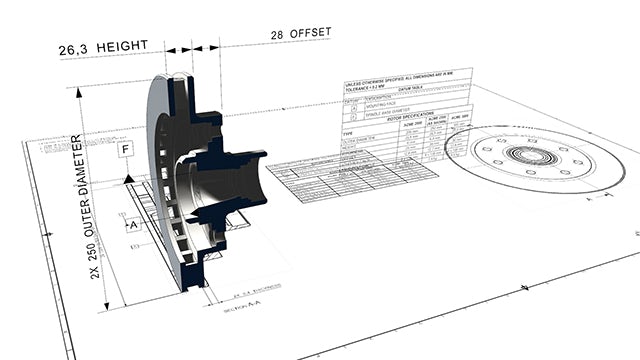The importance of openness
Modern enterprises have to implement a wide range of software applications across multiple domains to provide an end-to-end digitalization strategy and move the data they own across these applications as seamlessly as possible. When different software vendors come into play, barriers to software integration can arise. Software vendors break down these barriers by being open.
The value we place in openness is reflected in our open software architectures, published data formats, user communities and steering initiatives.
The Code of PLM Openness
We are a key participant in the Code of PLM Openness (CPO). This global initiative establishes a common understanding between software customers, vendors and service providers on the characteristics and significance of openness. CPO identifies seven categories for vendor openness.
Interoperability
Openness enables the effective integration of software into existing IT environments and the seamless exchange of customer-generated data. We enable interoperability through:
• Open software architectures
• Standard formats for data exchange
Extensibility
Openness gives customers the freedom to extend their software applications. Our open applications can be customized to add functionality, optimize workflows and integrate with in-house and legacy systems. Customization tools include Application Programming Interfaces (APIs) and high-level, process-specific wizards
Standards
Standards help customers to exchange data (standard data formats), customize software (standard coding languages) and deploy software (standard hardware, OS). We support industry standards that enable system interoperability and extensibility:
• JT, ASME Y14.41, STEP AP242
• ReqIF, FMI, 3MF, C++, Java and more
Infrastructure
Vendors should respect customer investments in IT infrastructure. We recognize the high investment that customers have made in existing IT infrastructures. Reliable communication and transparency from vendors about supported hardware and operating systems is key to being open.
Interfaces
Documented Application Programming Interfaces (APIs) enable interoperability and extensibility. Our open applications APIs support standard programming languages for:
• Integrating third party applications and in-house systems
(interoperability)
• Creating custom applications (extensibility)
Architecture
Open vendors enable customers to configure individual components in an n-tier system (e.g. client, application and database). Teamcenter offers an open architecture for configuring individual modules (client, web, enterprise and resource tiers).
Partnerships
Open partnership models enable third-parties to create more value for customers. Our global partner ecosystem delivers:
• Additional software solutions
• Specialized, local access to solutions, training and services
• Solution integration and business process consulting


